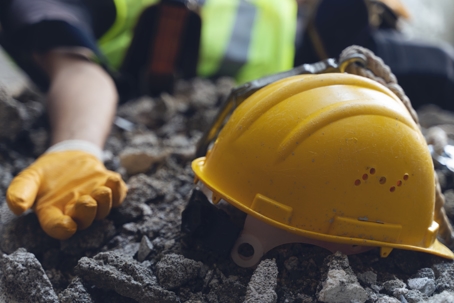Construction sites are vibrant, bustling places where a lot gets done—but they’re also some of the most dangerous workplaces out there. Accidents can happen in an instant, leaving workers injured and families devastated. If you’ve been hurt in a construction accident in Texas, you might feel overwhelmed, wondering who should be held responsible for what you’re going through. The good news? You don’t have to figure it out alone.
Common Causes of Texas Construction Accidents
While construction jobs carry risks, many accidents could be avoided if everyone followed proper safety protocols. Unfortunately, that doesn’t always happen. Here are some of the most common causes of construction site injuries:
- Falls from Heights: Whether it’s scaffolding, ladders, or rooftops, high places are a leading cause of accidents. Failing to secure harnesses or install guardrails can turn a routine day into a disaster.
- Machinery and Equipment Accidents: Heavy machinery like forklifts and cranes can be life-threatening if misused or poorly maintained. Even simple tools like nail guns can cause severe injuries when things go wrong.
- Falling Objects: Tools, debris, or building materials falling from above pose serious risks to workers below.
- Slip and Trip Hazards: Uneven surfaces, misplaced materials, or spills can all lead to dangerous slips or trips.
- Electrical Injuries: Contact with exposed wires or power lines can cause shocks or burns and, in the worst cases, can even be fatal.
Construction accidents often involve more than one factor, which is why determining liability can be tricky.
Who Can Be Held Liable?
When it comes to construction accidents, multiple people or entities might share responsibility. Understanding who is at fault is key to seeking justice and compensation.
1. The Employer
Employers have a responsibility to provide a safe working environment. This includes properly training workers, regularly inspecting the site for hazards, and providing safety gear like helmets and harnesses. If your employer failed in these duties, they might be liable for your injuries. However, in many cases, workers’ compensation insurance will provide coverage, and you won’t need to prove fault unless your employer was grossly negligent.
2. General Contractors and Subcontractors
Contractors overseeing the construction site are responsible for maintaining safety standards and securing the work area. If they cut corners or neglect their duties, you might be able to hold them accountable.
3. Property Owners
The owner of the property where the construction is taking place must ensure the site is reasonably safe. If hazardous conditions on the property contributed to your accident, the property owner could be held liable.
4. Equipment Manufacturers
Sometimes, the issue isn’t about human error but rather faulty machinery or equipment. For example, a crane with a design flaw or a defective harness might lead to a product liability claim against the manufacturer.
5. Third Parties
Other contractors, delivery drivers, or bystanders may act negligently and cause an accident. If another contractor’s actions create a safety hazard, they could be liable for damages.
Determining liability often requires an in-depth investigation, and a skilled attorney can make all the difference.
What Are Your Legal Options?
Taking action after a construction accident can feel daunting, but knowing your options helps you start on the right path. Here’s what you may be able to do:
Pursue a Workers’ Compensation Claim
If your employer carries workers’ compensation insurance, you can typically file a claim for medical bills, lost wages, and disability benefits. The benefit of workers’ comp is that you don’t need to prove that your employer was at fault. The downside? It may not fully cover your losses, like pain and suffering.
File a Personal Injury Lawsuit
If a third party (like an equipment manufacturer or another contractor) caused your accident, you could file a personal injury lawsuit. These cases allow you to seek compensation for things like medical expenses, lost income, and emotional distress.
Negligence Claims Against Non-Employers
If your accident stems from the negligence of someone who isn’t your employer—like a property owner or subcontractor—you may have grounds for a negligence lawsuit outside the workers’ compensation system.
Product Liability Cases
You can pursue a product liability claim against the manufacturer or seller when defective equipment is involved.
Survivor Claims and Wrongful Death
If someone you love died in a construction accident, you may be able to pursue a wrongful death claim to hold the responsible parties accountable and seek compensation for funeral expenses, lost income, and emotional suffering.
Why Legal Help Matters
Construction accident cases often involve multiple layers of liability and competing insurance providers. A qualified personal injury attorney in Texas can guide you through the process, gathering evidence, negotiating with insurers, and helping you fight for the recovery you deserve. They’ll take the guesswork out of what can otherwise be a confusing and overwhelming time.
Dallas Construction Accident Attorneys
Our team at J. Alexander Law Firm has the experience and expertise to handle these complex cases. Our Dallas construction injury lawyers have been helping people just like you for decades, recovering millions in compensation along the way. Contact us today at (214) 206-3264 to get started.

